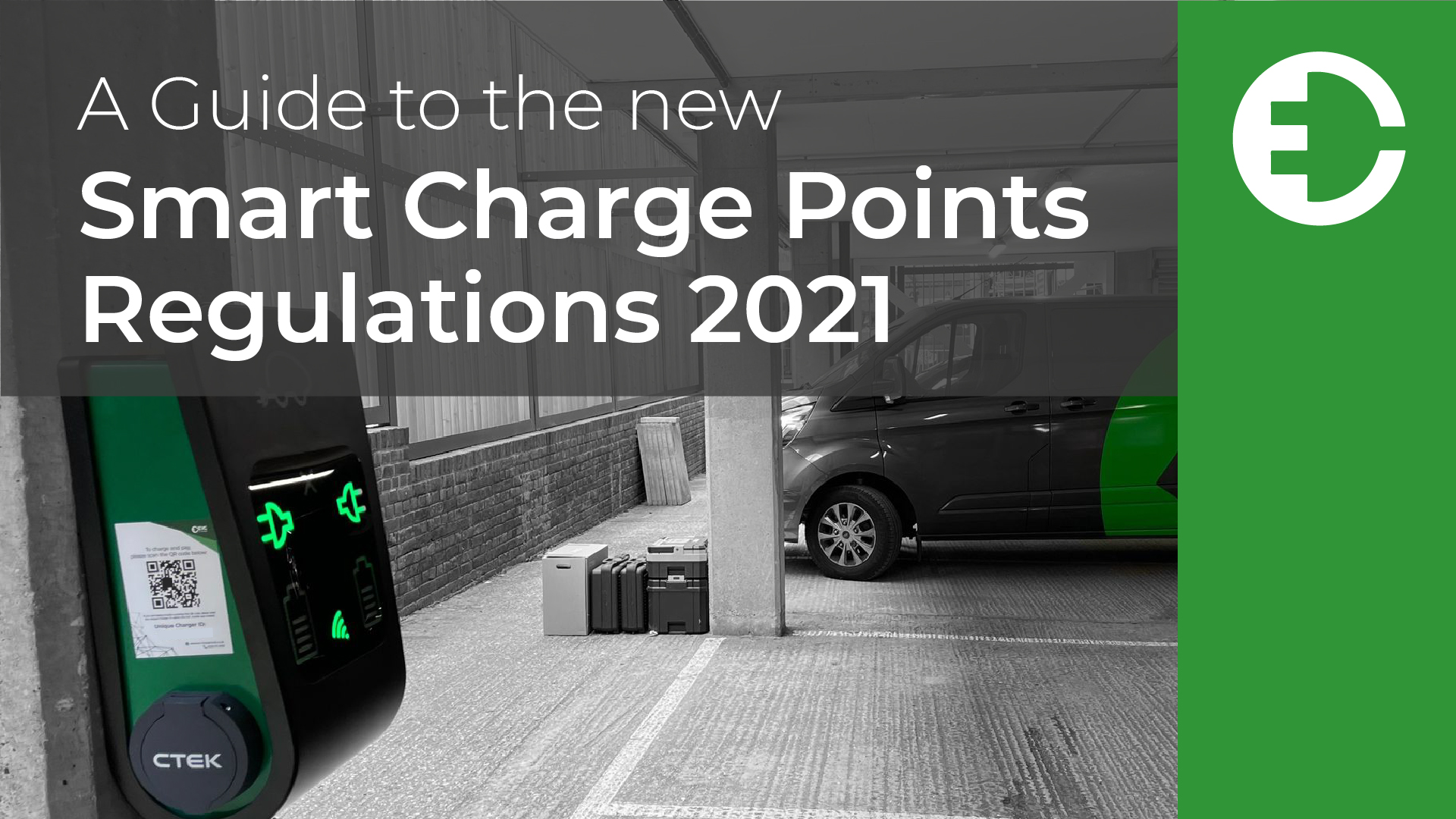A Guide to the new Smart Charge Points Regulations 2021

With EV charge points being installed at an ever-increasing rate, the UK Government have introduced new regulations to ensure charge point operators are providing the best service possible. For Home and Workplace EV chargers, the Electric Vehicle (Smart Charge Points) Regulations 2021 will come into effect from 30th June 2022 and will apply to England, Wales, and Scotland.
Here’s a breakdown of what the new regulations mean, and how they are applied to charge points.
Off-Peak Charging
New charge points, by default, will be set to charge during off-peak hours. This will alleviate pressure on the National Grid, as charging will take place when energy demand is at its lowest.
Smart Functionality
EV chargers must be able to send and receive information via a communications network. This includes being able to respond to these signals by increasing or decreasing the rate or time at which electricity flows through the charge point. This is done via mechanism called ‘Demand Side Response (DSR)’ which allows the Grid to send a signal to sites that have high levels of energy consumption. The automated signal requests the site to increase or decrease the load they are using to offset unpredictable surges in available power.
Measuring Systems
A charge point must measure or calculate the electricity imported or exported, as well as the time the charging event lasts. The charge point must also be able to measure electrical power and be capable of providing these values via a communications network. This data has to be retained for 12 months.
Electricity supplier interoperability
A charge point must retain its smart functionality even if the owner switches electricity supplier.
Loss of communications network access
All charge points must retain their ability to charge an electric vehicle even in the event it ceases to be connected to a communications network.
Randomised Delays
There will also be a randomised delay of 0-600 seconds at the start of each charge. This protects the Grid from surges in demand.
Safety
EV chargers must not allow the owner to carry out a specified operations such as overriding default charging, demand side response services, or randomised delay, as to do so could risk the health or safety of a person.
Security
Those selling a charge point must ensure the charge point meets the security requirements set out in Schedule 1 of the Regulations, which are based on the existing cyber security standard ETSI EN 303 645.
Assurance
Those selling a charge point must provide assurance that the charge point meets requirements through provision of a statement of compliance and technical file. All records of sales must be kept for 10 years following the date at which the legislation comes into force.
If you have any questions about the new regulations, feel free to contact This email address is being protected from spambots. You need JavaScript enabled to view it. and one of our team will be happy to help.
